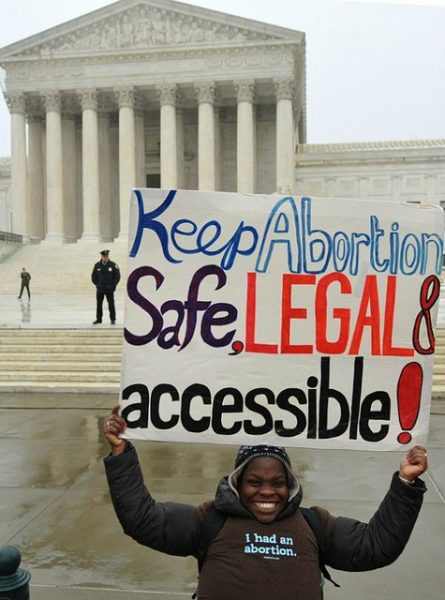
With the appointment of a new Supreme Court Justice looming, Roe v. Wade — the landmark legislation that legalized abortion across the United States — faces an increasing threat of being overturned. While we often talk about the women who have or seek abortions, we tend to forget about the providers who perform them. Abortion providers today certainly face many challenges to performing this service, but before Roe v. Wade, choosing to perform abortions was usually illegal and dangerous. Despite this precarity, many providers risked their lives to ensure women had access to abortions.
Abortion didn’t always receive public concern. In fact, prior to the mid 1900s, abortion was considered a strictly medical matter. In the late 1800s, medical professionals began advocating for the criminalization of abortion, arguing that women who sought them were medically ignorant about pregnancy. And, at a time when a growing number of immigrant groups seemed to threaten the dominance of White, Anglo-Saxons, doctors vehemently opposed abortions for White, Anglo-Saxon women who defied their “natural” purpose — to reproduce. Many doctors remained opposed to abortion into the mid to late 1900s, but not all. These others doctors — known as “doctors of conscience” — performed illegal abortions, often requiring the women they served to wear blindfolds so they could not identify the doctors if they were later arrested.
- Kristin Luker. 1984. Abortion and the Politics of Motherhood. University of California Press.
- Nicola Beisel and Tamara Kay. 2004. “Abortion, Race, and Gender in Nineteenth-Century America.” American Sociological Review 69: 498-518.
- Carole Joffe. 1995. Doctors of Conscience: The Struggle to Provide Abortions. Beacon Press.
It was not only trained medical professionals who performed illegal abortions. Some providers had little to no legitimate medical training. For example, members of the underground abortion service in Chicago — known as “Jane” — sought training so they would not need to rely on outsiders to perform services. Surprisingly perhaps, many clergy used their status and privilege of confidentiality with clients to provide referrals and assistance to women seeking abortions through an organization known as the Clergy Consultation Service (CCS).
- Laura Kaplan. 1995. The Story of Jane: The Legendary Underground Feminist Abortion Service. University of Chicago Press.
- Kelly Suzanne O’Donnell. 2017. “Reproducing Jane: Abortion Stories and Women’s Political Histories.” Signs 43(1): 77-96.
The CCS alone estimates that the abortion providers they worked with were able to supply hundreds of thousands of women with abortion services before Roe v. Wade. And this was only possibly through the collaborative efforts of individuals who formed organizations and networks, and used their privileges and resources to help women who sought their assistance. Today women continue to fight for reproductive rights, and with the possibility of Roe v. Wade‘s overturning, many worry that women will once again need to rely on providers like doctors of conscience to meet their reproductive needs.
This episode of the podcast, Criminal has more about the Clergy Consultation Service.

Comments